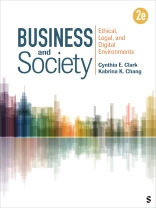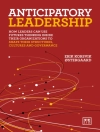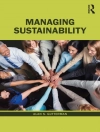Recipient of a 2021 Most Promising New Textbook Award from the Textbook & Academic Authors Association (TAA)
Business and Society: Ethical, Legal, and Digital Environments, Second Edition prepares students for the modern workplace by exploring the opportunities and challenges that individuals and businesses face in today′s increasingly global and digital world. Authors Cynthia E. Clark and Kabrina K. Chang present unique chapters on social media, big data and hacking, and privacy, diving deeper into the new legal and ethical challenges that are unleashed by our society′s use of and dependence on technology.
Real-world case studies, ethical dilemmas, and point-counterpoint debates provide students with hands-on opportunities to apply chapter concepts and develop critical thinking skills as they explore the relationship among businesses, their stakeholders, and their shareholders. The
Second Edition includes new cases and expanded coverage of global issues, the future of work, artificial intelligence and consumer rights.
Зміст
Part I • Managing in Today’s Business World
Chapter 1 • Stakeholder and Shareholder Theories
Defining Stake and Stakeholder
Stakeholder Versus Shareholder Theories
The Stakeholder and Shareholder Debate
Stakeholder Types: Interests, Issues, Legitimacy, and Power
Managing Stakeholders
Chapter 2 • Corporate Social Responsibility
Corporate Social Responsibility Defined
Corporate Social Responsibility as a Strategy
Different Corporate Social Responsibility Views and Schools of Thought
Corporate Social Responsibility and its Limitations
Corporate Social Responsibility Strategies and Trends
Chapter 3 • Ethics and Ethical Reasoning
Morals, Ethics, and The Law
Motivations and Rationalizations
The Origin of Ethics
Ethical Theories
Organizational Ethics and Creating an Ethical Climate
Chapter 4 • Organizations and Public Policy
Role of Business in Shaping Laws and Policy
Evolution of Lobbying: Opportunities for Influence
Creating Public Policy
Public-Private Partnerships
Ethical Dimensions of Influencing Policy
Chapter 5 • Corporate Personhood
Corporate Personhood
Regulation of Business Through the Commerce Clause
Regulation Through the Tax and Spend Clause
Chapter 6 • Liability, Business Agreements, And Managing Risk
Risk of Injury
Respondeat Superior and Product Liability
Contracts
Limiting Risk Through Contracts
Chapter 7 • Government Regulation of Business
Anticompetitive Behavior and Antitrust Regulation
Protection of Consumers and Creditors
Part II • Building Relationships and Working with Stakeholders
Chapter 8 • International and Multinational Organizations
Cultural Competence
International Customs and Law
Doing Business Around the World
Chapter 9 • Environmentalism and Sustainability
Environmentalism: Definitions and Policy Objectives
Green Management and Competitive Advantage
Sustainable Development
Climate Change
Chapter 10 • Environmental Risk, Regulation and Reporting
Environmental Risk: Challenges and Opportunities
International and Domestic Environmental Regulations
Government Regulation and Protection
Environmental, Social and Corporate Governance (ESG)
The Disclosure Landscape
Chapter 11 • Employees and The Corporation
The Employment Relationship
Employment At-will
Controlling the Employment Relationship With Contracts
Workplace Protections
Employee Privacy
Chapter 12 • Managing A Diverse Workforce
Managing for Innovation
Bias and Discrimination
Intersectionality
Laws to Protect Against Discrimination
Chapter 13 • Governance of The Organization, Investors, And Financial Markets
The Global Financial System
Government Regulation of Markets
The Role of Corporate Governance and Effect of Financial Crises
Part III • Contemporary Business Issues in Today’s Society
Chapter 14 • Social Media and Citizen Movements
The Evolution of Social Media
The Business Model of Social Media
How Business Use Social Media
Society, Democracy, and Social Media
What Rules Apply to Social Media
Chapter 15 • Big Data and Hacking
The Digital Revolution
The Digital Dive
Big Data and the Organization
Digital Security and Safety
Legal Issues and the Use of Big Data
Ethical Issues and the Use of Big Data
Chapter 16 • Privacy in The Digital Age
What is the Right To Privacy
Collecting Personal Information: Benefits and Harms
Right to be Forgotten, Right to Erasure, and Surveillance
What Can Managers Do?
Glossary
Notes
Index
Про автора
Kabrina K. Chang is an Associate Dean for Diversity, Equity, and Inclusion, and a clinical associate professor of business law and ethics in the Markets, Public Policy, and Law Department at Boston University’s Questrom School of Business . She teaches Introduction to Business Law, Employment Law, and Business, Justice, and Responsibility in the undergraduate program and Business Law and Discrimination, and Employment Law in the MBA program. Professor Chang also developed and co-coordinated Business, Society, and Ethics, a gateway course for all Questrom School of Business students. Professor Chang’s research focuses on employment matters, in particular social media, and how that impacts employment and management decisions and also on corporate social advocacy. Her work has been published in academic journals and news outlets such at the New York Times, Quartz.com, Bloomberg, and the Boston Globe as well as in magazines such as Forbes and Harvard Business Review. Professor Chang has won several awards for her teaching and writing. Before her academic career, Professor Chang was a trial lawyer in private practice.












